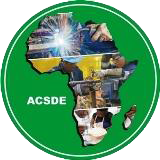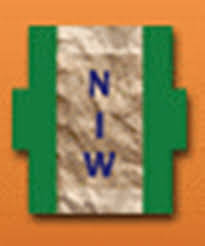

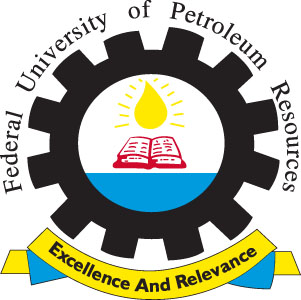
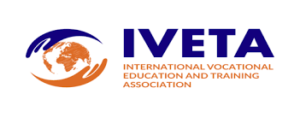
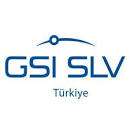

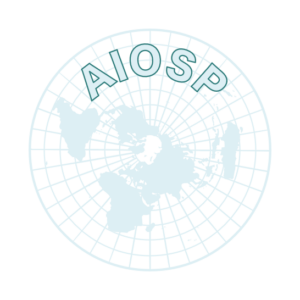
- NIGERIAN INSTITUTE OF WELDING (NIW)
- AWARD FOR TRAINING AND HIGHER EDUCATION (ATHE)
- FEDERAL UNIVERSITY OF PETROLEUM RESOURCES (FUPRE)
- INTERNATIONAL VOCATIONAL EDUCATION AND TRAINING ASSOCIATION (IVETA)
- INTERNATIONAL ASSOCIATION FOR EDUCATIONAL AND VOCATIONAL GUIDANCE (IAEVG)
- GSI SLV-TR
- KARGUN & FOKUS
- INNOAF ACADEMY – FARMER FIELD SCHOOL
Nigerian Institute of Welding
Nigerian Institute of Welding (NIW) is the umbrella body of Welding organisations involved in training and other welding activities in Nigeria. NIW is responsible for the management of welding technology and development in Nigeria, member of the International Institute of Welding (IIW), International Authorisation Board of IIW (IAB) and pioneer member of the African Welding Federation (AWF).
Its mandate includes monitoring, supervising and standardization of welding and related practices in Nigeria as defined in the guidelines of Nigerian Content Act managed by Nigerian Content Development and Monitoring Board (NCDMB) and NIW Mutual Recognition Agreement (MRA) with standards organization of Nigeria (SON). NIW is the licensed awarding body for the Nigerian National Skills Qualification Framework (NSQF) for Welding and Related Skills in Nigeria.
Award for Training and Higher Education
ATHE is a global awarding organisation regulated by Ofqual and other UK and international regulators. We work with 200 recognised centres in over 35 countries to complement our strong brand presence in the UK. ATHE offers a wide portfolio of vocationally orientated and internationally recognised qualifications – such as business and management, law, computing and healthcare, with many eligible for UK funding. We have also developed a diverse range of regulated bespoke qualifications for clients through our qualifications development service. ATHE qualifications are approved as progression pathways to relevant Bachelor’s and Master’s Top Up degrees by a growing number of UK and international Universities, providing significant tertiary education opportunities for our learners.
FUPRE Energy Solutions (Nigeria) Limited
(FESL) is a private entity established by the Federal University of Petroleum (Nigeria) and I-Flow Energy Holdings (UK) Limited to provide people-focused human capacity building, engineering and international development consultancy. University research are studies conducted by scholars in Universities around the world. In Nigeria for example, it is mandatory that scholars write academic papers because it is one key criterion for evaluating/ assessing them for promotion. A lot of research papers are written and published by university scholars in Nigeria concurrently with little correlating impact to the society. Nigeria recently experienced recession and its pressure on the economy is still been felt, FESL exist to fill the lacuna and proffer well defined solutions to the challenges of the nation especially in the Oil and Gas sector. We are committed to community wellbeing, innovations, organisational and industrial sector transformation. We undertake research, planning, strategy and consultation for clients and partners in the public, private and non-profit sectors. We run senior management and technical training courses which are of relevance to private and public sector organisations and geared towards improving skills and competency development of executive and non-executive staff.
International Association for Educational and Vocational Guidance
The International Association for Educational and Vocational Guidance (IAEVG) is committed to the global provision of educational and vocational guidance, provided by competent and recognized professionals. IAEVG members facilitate the dignity, freedom, and integrity of people in making lifelong choices and decisions at all ages, across their life roles, as they anticipate, prepare for, enter into, face and cope with the dynamics of the labour market and the workplace.
IAEVG members recognize that vocational choices and career development have an impact that reaches beyond the individual, including responsibilities to families, communities, and the larger society and environment.
The IAEVG is recognized as a Non-Governmental Agency by:
- UNESCO – United Nations Educational, Scientific and Cultural Organization
- UNEVOC – United Nations International Project on Technical and Vocational Education
- OECD – Organization for Economic and Community Development
- ILO – International Labour Organization
- ICCDPP – International Centre for Career Development and Public Policy
International Vocational Education and Training Association
IVETA is an organization and network of vocational educators, vocational skills training organizations, business and industrial firms, and other individuals and groups interested or involved in vocational education and training worldwide. IVETA is dedicated to the advancement and improvement of high-quality vocational education and training wherever it exists and wherever it is needed.
IVETA is working to create a new era in communication among vocational educators around the globe. Members include practitioners, researchers, and students in the field of vocational education and training as well as institutions, organizations, and companies actively engaged in human resource development.
- Promote excellence and quality in vocational education and training.
- Provide support and services to members across the global TVET community.
- Actively advocate on behalf of members and create a strong and united voice on behalf of the TVET community.
GSI SLV-TR
GSI is the Germany Institute of Welding domicile in Turkey.
KARGUN & FOKUS
Human capacity company based in turkey offers personnel and managerial skills required to build a strong workforce for a sustainable organisation.
INNOAF Academy
Introduction of agriculture technical innovation school – Sustainable growth of agricultural production is necessary to achieve the goals to improve food self-sufficiency rate, ensure food security, reduce the number of undernourished people and decrease poverty. In order to expand agricultural production in Nigeria and Africa to cope with population increase at the annual rate of more than 2 percent, it is necessary to increase production by increasing yield per unit of land through improvement of varieties and production methods, because it is questionable whether it is possible to increase the growing area at the past pace. This means that the yield of such African traditional food crops as maize, millet, sorghum, cassava and legume should be increased by growing better varieties and improving production techniques.
